Sex Reassignment Surgery (Male to Female) in Turkey
Search and Compare the Best Clinics and Doctors at the Lowest Prices for Sex Reassignment Surgery (Male to Female) in Turkey
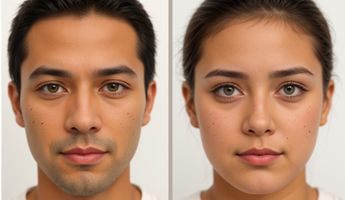
Find the best clinics for Sex Reassignment Surgery (Male to Female) in Turkey
With Medijump you can browse 3 facilities offering Sex Reassignment Surgery (Male to Female) procedures in Turkey. The cheapest price available is $38,130 in Istanbul. And for the cheapest price globally, prices start from $2,473 in Thailand.
Sex Reassignment Surgery (Male to Female) in Istanbul
Price: $ 38,130
Sex Reassignment Surgery (Male to Female) in Antalya
Price: $ 76,455
Thailand offers the best prices Worldwide
Price: $ 2,473
From 1 verified reviews
Cleo Tate, 01 September 2023
Dr. Cemal and the team are excellent and skilled. They made me feel comfortable at every step. I will definitely come back if I need another procedure in the future.
world wide international aesthetic, located in Sirinyali, Antalya, Turkey offers patients Sex Reassignment Surgery (Male to Female) procedures among its total of 57 available procedures, across 9 different specialties. The cost of a Sex Reassignment Surgery (Male to Female) procedure ranges from €70,187 to €93,583, whilst the national average price is approximately €52,590. There are many specialists available at the Clinic, with 7 in total, and they are not accredited by any recognized accreditations institutes
Florya Aesthetic Clinic, located in Gaziosmanpasa, Istanbul, Turkey offers patients Sex Reassignment Surgery (Male to Female) procedures among its total of 18 available procedures, across 1 different specialties. The cost of a Sex Reassignment Surgery (Male to Female) procedure ranges from €35,000 to €45,000, whilst the national average price is approximately €52,590. There are many specialists available at the Hospital, with 7 in total, and they are not accredited by any recognized accreditations institutes
- Home
- Turkey
Compare Before & After Photos of _procedure_photos.phpSex Reassignment Surgery (Male to Female)


Front view


Front view
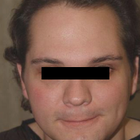

Front view
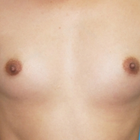

Front view


Front view


Front view
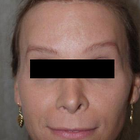
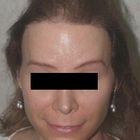
Front view
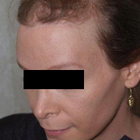
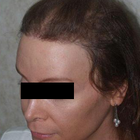
Half-side view
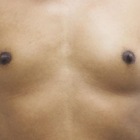
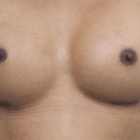
Front view
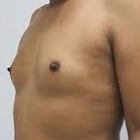

Half-side view
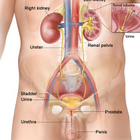
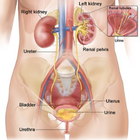
Front view
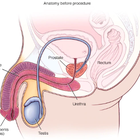
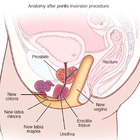
Full-side view
WHY US?
At Medijump, we're making medical easy. You can search, compare, discuss, and book your medical all in one place. We open the door to the best medical providers worldwide, saving you time and energy along the way, and it's all for FREE, no hidden fees, and no price markups guaranteed. So what are you waiting for?

Free

Best Price

Widest Selection

Risk-Free
What you need to know about Sex Reassignment Surgery (Male to Female) in Turkey

Also known as Gender Reassignment or Sex Change Surgery, Sex Reassignment Surgery (SRS) involves the surgical procedures required to change a person’s sexual characteristics from one gender to the other. The procedure can be used to transition a person from Male to Female and from Female to Male. Male to Female procedure involves reshaping of male genitals to appear and function as female genitalia (including a vaginoplasty), hair removal therapy, hormone replacement, facial feminization surgery, and Breast Augmentation.
Hormone treatment is started one year prior to surgery and continues after, where estrogen helps to reshape the body’s contours and stimulates the growth of labia majora. At least one therapist will be required to assess a patient’s psychological wellbeing before the go-ahead can be given.
The decision to have a breast augmentation should be an informed one that takes into account the potential risks and side effects. You should also have realistic expectations about the results of breast implant surgery to avoid disappointment. Find out about the procedure, the recovery period and any possible complications - ask your doctor or surgeon if you are unsure about anything.
What is the cost of Sex Reassignment Surgery (Male to Female) in Turkey?
One of the most common inquiries about the Sex Reassignment Surgery (Male to Female) pertains to its expense. The financial burden associated with the procedure may significantly impact one's decision to pursue it. Nonetheless, it's not easy to pinpoint the exact cost, given that numerous factors can influence it. In Turkey, the total cost of the procedure may fluctuate considerably based on factors like surgeon qualification, the intricacy of the operation, and the span of hospitalization, to name a few.
It's vital to acknowledge that the Sex Reassignment Surgery (Male to Female) is not a one-off event, but entails a succession of treatments and surgeries. Typically, it includes mental health sessions, hormone treatments, and several surgical procedures, all of which add to the general cost. Expenses post-surgery, such as medication, check-up appointments, possible extra surgeries, and supplementary therapies, also require consideration. Furthermore, expenses for travel and lodging in Turkey should be taken into account. For a precise cost approximation, reach out directly to the clinic.
What does a Sex Reassignment Surgery (Male to Female) Procedure Involve?
Clinically speaking, sex change operation is known as “Genitoplasty Procedure”. This type of procedure can be performed to transition an individual from female to male and from male to female.
It is very important to understand that before you undergo surgery, you will need to first transition. Gender transition is a lengthy process that requires a lot of patience and resilience. In addition, it will be of great help if you have a strong support system to back you up in times of difficulty. It’s also essential that you have a therapist to not just help you with your emotional wellbeing before and after the transition, you will also need a letter of recommendation from your therapist before your surgery.
Transitioning from male to female will involve penectomy (removal of the penis), orchiectomy (removal of testes), vaginoplasty (creation of a vagina), and feminizing genitoplasty (creation of female genitalia). During the surgery, you will be induced with a general anesthetic.
You must start hormone treatment a year prior to your surgery to help reshape your body contours and stimulate the growth of your labia majora. Hormone treatment will be continued even after your sex-change operation.
There are popular MTF sex reassignment surgery techniques which you can choose from, two of which are: sex reassignment surgery with skin graft technique - the most popular SRS procedure, vaginal depth is up to 13-15cm (5-6 in). Another is sex reassignment surgery with colon graft - suitable for people with less scrotal skin and those who prefer a lubricated vagina and is considered as the most expensive procedure.
There are other procedures that you can undergo to fully transition from male to female. These may include; breast implants, facial feminization surgery (FFS), and another procedure would be to minimize the appearance of your Adam’s apple, etc. All procedures to help one fully transition will vary on the individual’s need and of course, their budget.
Prerequisites to Surgery
- Patients must be at least 20 years old or have consent from parents / legal guardians for those between 18 and 20.
- At least 12 months of successful and continuous real-life experience living as a woman.
- At least 12 months of continuous hormonal therapy.
- Must consult with a psychiatrist in the home country and in the country where the procedure will be performed (this can be arranged in your chosen hospital in Turkey).
- Physically fit for surgery.
Popular MTF Sex Reassignment Surgery (SRS) Techniques
1. SRS with Penile Skin Inversion
- Suitable for patients who do not want a vagina for sexual intercourse, particularly popular with elderly trans people. Depth is around 2-4 cm (1-2 in) and penile hair removal is required prior to surgery.
- Surgery: 2.5 hours
- Hospitalization: 4 nights
- Recovery time in Turkey: 3-4 weeks
2. SRS with Scrotal Skin Graft
- Scrotal skin is used to create a vaginal depth of up to 13-15 cm (5-6 in), depending on skin quality and quantity (additional depth is possible by using groin skin). This is the most popular SRS procedure.
- Surgery: 4 hours
- Hospitalization: 6 nights
- Recovery time in Turkey: 3-4 weeks
3. SRS with Sigmoid Colon by Laparoscopic Technique
- The Sigmoid colon is used to create the vagina, allowing for greater depth than what is possible with SRS with a scrotal skin graft. More suited to those with less scrotal skin or those who prefer to have a lubricated vagina, like that of a biological woman. By far the most expensive technique.
- Surgery: 6 hours
- Hospitalization: 7 nights
- Recovery time in Turkey: 3-4 weeks
How Long Should I Stay in Turkey for a Sex Reassignment Surgery (Male to Female) Procedure?
A lot of patients prefer having surgery overseas since it is far less expensive and most countries, like Turkey, have a very high success rate in terms of plastic surgery and gender reassignment surgery.
Recovery after surgery will be a long and painful process. It will also require several follow up procedures as well as constant monitoring so you will have to stay a little bit longer at the hospital until you are ready to be discharged. Generally, allow for a minimum of 3 weeks stay in Turkey after your surgery, this will allow for the removal of stitches and a few weeks of follow up visits with the surgeon.
What's the Recovery Time for Sex Reassignment Surgery (Male to Female) Procedures in Turkey?
Smoking before and after the surgery is highly discouraged and avoid smoking for at least two weeks to reduce risks of non-healing.
Most people are able to return to work in about 4-6 weeks after a sex change operation. Furthermore, you can resume strenuous work and exercise after 2 months. It is vital that you strictly follow all medication instructions during your recovery period.
Keep in mind, recuperation incorporates not only physical healing but also emotional rejuvenation. The Sex Reassignment Surgery (Male to Female) implies a noteworthy modification in your way of living and acclimating to an altered body image and social identification requires patience. Mental health guidance proves to be an important element in the healing journey, offering emotional assistance and managing any mental obstacles that come up.
What sort of Aftercare is Required for Sex Reassignment Surgery (Male to Female) Procedures in Turkey?
Social support is very important before and after the surgery, especially the support that comes from your family and loved ones. You have to be socially and emotionally stable before you undergo the operation. This is why it is required that you have proper counseling to help you with your emotional wellbeing. You have to prepare yourself mentally, before, during and after transition because it can be quite overwhelming and stressful.
It is also important that you maintain a regular check-up with your local doctor to monitor the progress of your healing and avoid complications.
What's the Success Rate of Sex Reassignment Surgery (Male to Female) Procedures in Turkey?
The success rate for a sex change is very high nowadays, given technological advancements and the greater experience of surgeons. Gender reassignment surgery from male to female has a higher success rate than female to male; this is why more male transgender people opt for a sex change.
However, given the nature and complexities of this type of surgery, you also have to be aware of its complications, for example, there is always a possible risk of infection, severe pain, given the intrusive nature of the surgeries and the potential for blood clotting and scarring.
Possible side effects may also include a decreased sexual sensation and ability to orgasm, fistula (opening between rectum and vagina), narrowing of vagina and hair growth in the vagina from the grafted tissue and the partial death of tissue used to create the new vagina.
Are there Alternatives to Sex Reassignment Surgery (Male to Female) Procedures in Turkey?
There is no alternative to a sex-change operation for those who want to fully transition their body to match their gender identity. Undergoing gender reassignment surgery will require a lot of time, energy, patience, and of course money. A vast majority of people who experience gender dysphoria never really surgically alter their appearance. Instead, they use creams and hormonal pills to alter their bodily appearance. Estrogens (female hormones) will help develop the breast, widen the hips, help lose facial hair and slightly increase voice pitch.
What Should You Expect Before and After the Procedure
Prior to even undergoing the Sex Reassignment Surgery (Male to Female), those considering this option should be aware that their health care provider will necessitate a thorough evaluation phase. This is implemented to ascertain that the individual is thoroughly prepared, both physically and mentally, for the major changes that the procedure implies. The evaluation generally includes multifaceted assessments of physical and mental health, as well as evaluating certain social circumstances. The objective of these assessments is to gauge the individual's preparedness and appropriateness for the procedure.
In this initial stage, the health care provider implements a cross-disciplinary strategy, typically engaging a collaborative team made up of endocrinologists, psychologists, and surgeons. The aim is the effective provision of required hormone therapy and mental health counseling, alongside addressing any possible health-related issues. This pre-surgery stage also serves to educate and obtain consent, meticulously discussing details such as the implications, possible outcomes, risks, and difficulties related to the Sex Reassignment Surgery (Male to Female). Once approved for surgery, patients should be ready to adhere strictly to all pre-surgery directions to lessen any potential risks and complications during the process.
Post Sex Reassignment Surgery (Male to Female), patients should gear up for a substantial recovery period. This will require dedicated wound maintenance, compliance with prescribed medicines, and following specific physical limitations to assist healing. Depending on the specific nature of the surgery, some patients might also have to adhere to a vaginal dilation plan. This plan necessitates consistent use of dilators to avoid the newly created vagina from becoming narrow during the healing period.
What are Potential Risks of Sex Reassignment Surgery (Male to Female)?
A comprehensive understanding and consideration of prospective hazards and difficulties linked to Sex Reassignment Surgery (Male to Female) is vital before proceeding. As a significant surgical operation, it inherently possesses hazards such as intolerance to anesthesia, surgical infections, hematoma or blood congregating outside the blood vessels, excessive bleeding, or suturing problems. Even with the advancements in modern surgical procedures that help minimize these risks, they cannot be entirely eradicated and, therefore, must be anticipated.
The Sex Reassignment Surgery (Male to Female) encompasses elaborate and multifaceted surgeries like vaginoplasty, which have unique inherent risks. Some of these potential hazards include the possibility of diminished sexual sensitivity, complications in urinary functions, or challenges with the dimensions of the newly formed vagina. Other complications can include issues such as vaginal stenosis, a scenario where the vagina gradually shrinks and lessens over time, or rectovaginal fistula, a rare situation where a connection forms between the rectum and vagina unintentionally. Sometimes, more corrective surgeries might be necessitated due to post-surgical complications.
Popular Procedures to Combine with SRS
- Usually performed in one operation: Orchiectomy to remove the testicles and prevent further production of testosterone, Penectomy to remove the penis and Vaginoplasty to form the female genitalia
- Breast Augmentation to create the breasts, which is usually performed at a later date.
- Facial Feminization Surgery (FFS) and Tracheal Shave to help feminize the facial features and is not necessary for many patients.
- Hair Implants, Hair Removal Therapy, and Continued Hormone Replacement Therapy.
Whilst the information presented here has been accurately sourced and verified by a medical professional for its accuracy, it is still advised to consult with your doctor before pursuing a medical treatment at one of the listed medical providers
No Time?
Tell us what you're looking for and we'll reachout to the top clinics all at once
Enquire Now

Popular Procedures in Turkey
Prices Start From $69

Prices Start From $208

Prices Start From $1,945

Prices Start From $1,795

Prices Start From $889

Recommended Medical Centers in Turkey for Sex Reassignment Surgery (Male to Female)

- Interpreter services
- Translation service
- Religious facilities
- Medical records transfer
- Medical travel insurance
- Health insurance coordination
- TV in the room
- Safe in the room
- Phone in the room
- Private rooms for patients available

- Interpreter services
- Translation service
- Religious facilities
- Medical records transfer
- Medical travel insurance
- Health insurance coordination
- TV in the room
- Safe in the room
- Phone in the room
- Private rooms for patients available

- Interpreter services
- Translation service
- Religious facilities
- Medical records transfer
- Medical travel insurance
- Health insurance coordination
- TV in the room
- Safe in the room
- Phone in the room
- Private rooms for patients available

- Interpreter services
- Translation service
- Religious facilities
- Medical records transfer
- Medical travel insurance
- Health insurance coordination
- TV in the room
- Safe in the room
- Phone in the room
- Private rooms for patients available

- Interpreter services
- Translation service
- Religious facilities
- Medical records transfer
- Medical travel insurance
- Health insurance coordination
- TV in the room
- Safe in the room
- Phone in the room
- Private rooms for patients available

- Interpreter services
- Translation service
- Religious facilities
- Medical records transfer
- Medical travel insurance
- Health insurance coordination
- TV in the room
- Safe in the room
- Phone in the room
- Private rooms for patients available

- Interpreter services
- Translation service
- Religious facilities
- Medical records transfer
- Medical travel insurance
- Health insurance coordination
- TV in the room
- Safe in the room
- Phone in the room
- Private rooms for patients available

- Interpreter services
- Translation service
- Religious facilities
- Medical records transfer
- Medical travel insurance
- Health insurance coordination
- TV in the room
- Safe in the room
- Phone in the room
- Private rooms for patients available

- Interpreter services
- Translation service
- Religious facilities
- Medical records transfer
- Medical travel insurance
- Health insurance coordination
- TV in the room
- Safe in the room
- Phone in the room
- Private rooms for patients available

- Interpreter services
- Translation service
- Religious facilities
- Medical records transfer
- Medical travel insurance
- Health insurance coordination
- TV in the room
- Safe in the room
- Phone in the room
- Private rooms for patients available
Sex Reassignment Surgery (Male to Female) in and around Turkey
About Turkey
Where East meets West – Turkey is considered to be both Asia and Europe, with 95% of its landmass being located in Asia. Rich in culture and history, a land once inhabited by some of history’s greatest empires, including most recently the Ottoman Empire and long before that, the Roman and Byzantine Empires. Of Turkey’s 1,200+ medical facilities, of which many are JCI-accredited and this includes an even mix of publicly and privately owned hospitals and clinics.
700,000 annual medical tourists are drawn to Turkey each year, traveling from all across the globe, particularly from within Europe and the Middle East, many of which travel for Sex Reassignment Surgery (Male to Female) procedures. Dental, Cosmetic, Bariatric, and Reproductive procedures are most common, including Veneers, Hair Transplants, Gastric Bypass Surgeries, and IVF. Popular medical tourism destinations outside of the capital, Ankara, of course, include Istanbul and other regions like Antalya and Izmir.
Popular Parts of Turkey
With a population of around 85 million, Turkey has a landmass of nearly 800,000 square km. The capital city is Ankara, located inland, however, Istanbul is the most populous and most recognized city in Turkey with some 15 million inhabitants. Straddling both Europe and Asia, the city attracts 13 million tourists each year, making it the fifth most popular tourist destination in the world.
Additional well-frequented locations encompass Antalya nestled in the southern part of the country, as well as Izmir perched in the west. Paradoxically, the eastern region of the country sees less influx of tourists. One major contributing factor is the enduring Kurdish-Turkish conflict, exacerbated further owing to its geographical closeness to conflict-laden nations such as Syria and Iraq.
Sun-chasers seeking a blend of affordability and indulgence invariably find themselves drawn to the southern holiday resorts like Marmaris and Bodrum. These locales are a magnet for those yearning for 5-star luxury hotels, offered at reasonable prices and with all-inclusive perks, for their vacation getaway.
The discovery of the world’s oldest known megalithic site at Gobekli Tepe in the South-Eastern Anatolia Region has cast much doubt over mankind’s ancient history and consequently attracts a sizable number of ‘History Tourists’. This UNESCO World Heritage Site is believed to be over 11,000 years old, built during a time humans were understood to be simple hunter-gatherers.
Weather and Climate in Turkey
Enjoying a Mediterranean location, Turkey's south coast is graced by refreshing sea breezes. Despite this, the summer months from June through August witness soaring heat with temperatures often climbing into the 40s (104°F). The transitional seasons of spring and autumn bring more temperate weather, and winters are quite mild.
Turkey's vast expanse leads to a variety of weather patterns across its regions. The central parts of the country predominantly feature a semi-arid steppe climate, while the northern Black Sea region showcases far milder conditions compared to the southern Mediterranean Sea region.
Do take note of the potential problem of mosquitos and sandflies, particularly during summers in coastal areas. It's advisable to take proper protective measures against them. Though malaria cases are extremely rare, always consult a healthcare professional for appropriate advice before embarking on your trip.
Getting around in Turkey
Istanbul’s famous Ataturk International Airport sits 24 km outside the city and is home to the ever-popular Turkish Airlines. Most other major airlines service Ataturk, which is often used as a stopover destination for travelers between Europe and Asia. All the other major cities are serviced by their own international airports, with several low-cost domestic airlines joining them together, including AtlasGlobal, IZair, Onur Air, Pegasus Airlines, and SunExpress.
For those preferring to travel by land, Turkey has a few express train routes linking the major cities, most notably, Istanbul to Ankara. City buses are reliable and good value, whilst taxis are cheap, but be sure to negotiate the price before beginning any journey.
Tourist Visas in Turkey
Visa restrictions are relatively light, with a 90-day per visit allowance readily available for many nationalities. Still, e-visas need to be procured in advance, for a fee, by travelers hailing from countries such as the US, UK, Australia, China, and Spain. Conversely, passport holders from countries including France, Germany, Russia, and Singapore are granted visa-free entry.
For nationals from India and Pakistan, conditional e-visas are offered upon arrival, but solely at Ataturk International Airport. These visas have a validity of just 30 days. For comprehensive information on visa requirements, it is recommended to visit the Ministry of Foreign Affairs website.
Additional Information
- The Turkish Lira (TRY) is the local currency where $1 USD is worth about 18 TRY, having experienced heavy fluctuations recently.
- ATMs are in abundance across Turkey and accept all bank cards (Visa, Mastercard). Credit card and Amex payments are accepted in most restaurants and outlets, with more local food vendors or food market stalls, only accepting cash. Tipping is expected as service is not included at restaurants, this is usually between 5-10%. Taxi rides tend not to be tipped, just rounded up.
- Turkish is the local language with the eastern Kurds speaking Kurdish too. English is spoken by many locals working in tourist locations, including major cities.
- Islam (99.8%) is by far the main religion in Turkey, with a tiny Christian population (0.2%). Turkey is, however, a secular country where there is no ‘official’ state religion. Various elements of traditional culture remain, with much being modernized or ‘Westernized’.
- There are many public holidays, most notably Labor Day and Commemoration of Ataturk in May, Ramazan Feast in June, Kurban Bayrami in August, and Republic Day at the end of October.
Popular Searches
- Plastic Surgery in Thailand
- Dental Implants in Thailand
- Hair Transplant in Thailand
- Breast Augmentation Thailand
- Gastric Sleeve in Thailand
- Gender Reassignment Surgery in Thailand
- Laser Hair Removal in Bangkok
- Botox in Bangkok
- Dermatology in Bangkok
- Breast Augmentation in Bangkok
- Coolsculpting in Bangkok
- Veneers in Turkey
- Hair Transplant in Turkey
- Rhinoplasty in Turkey
- Stem Cell Therapy in Mexico
- Rhinoplasty in Mexico
- Liposuction in Mexico
- Coolsculpting in Tijuana
- Rhinoplasty in Korea
- Scar Removal in Korea
- Gastric Sleeve in Turkey
- Bone Marrow Transplant in India
- Invisalign in Malaysia
- Plastic Surgery in the Dominican Republic
- Tummy Tuck in the Dominican Republic
- Plastic and Cosmetic Surgery in Poland
- Rhinoplasty in Poland
- Hair Implant in Poland
- Dental Implants in Poland
- IVF in Turkey


